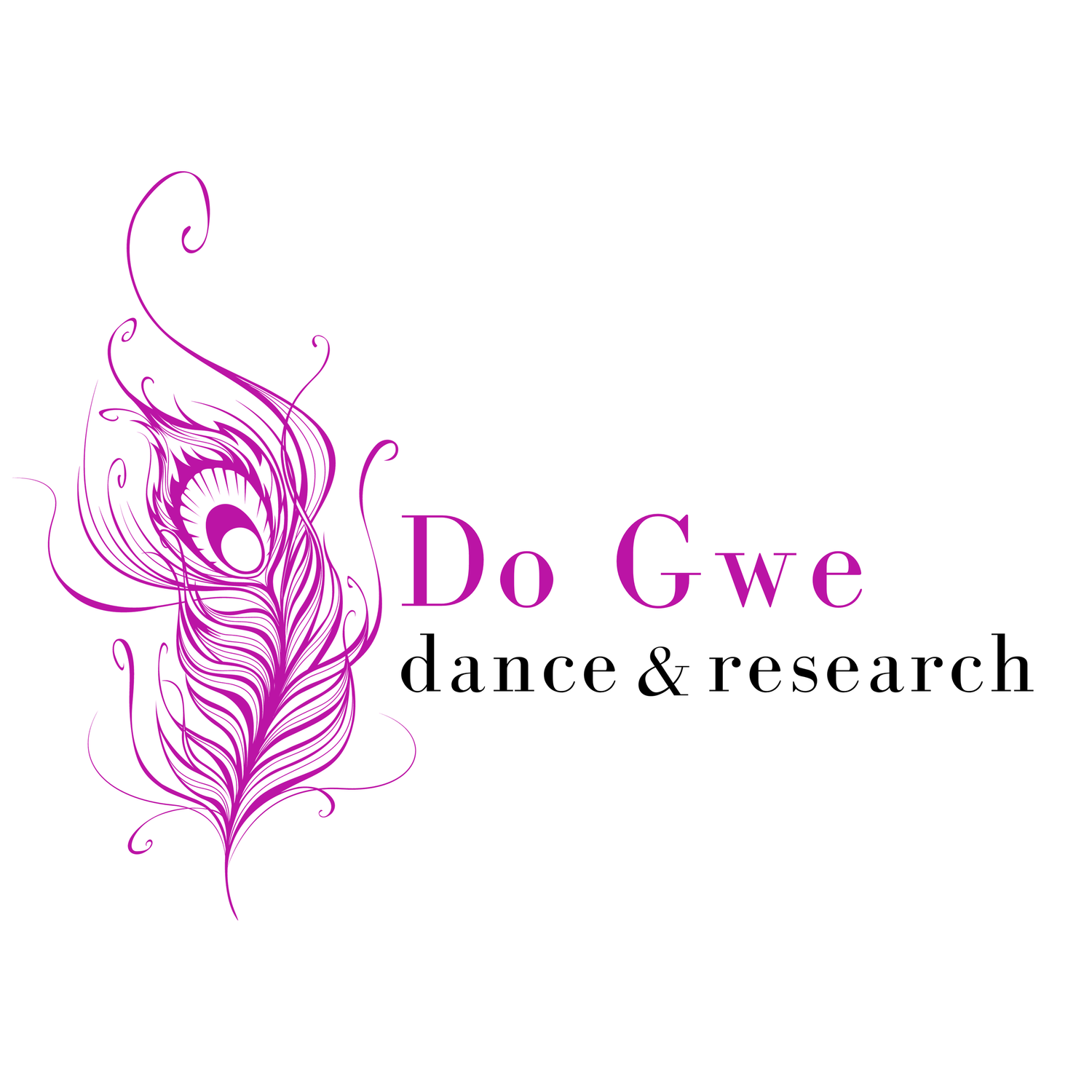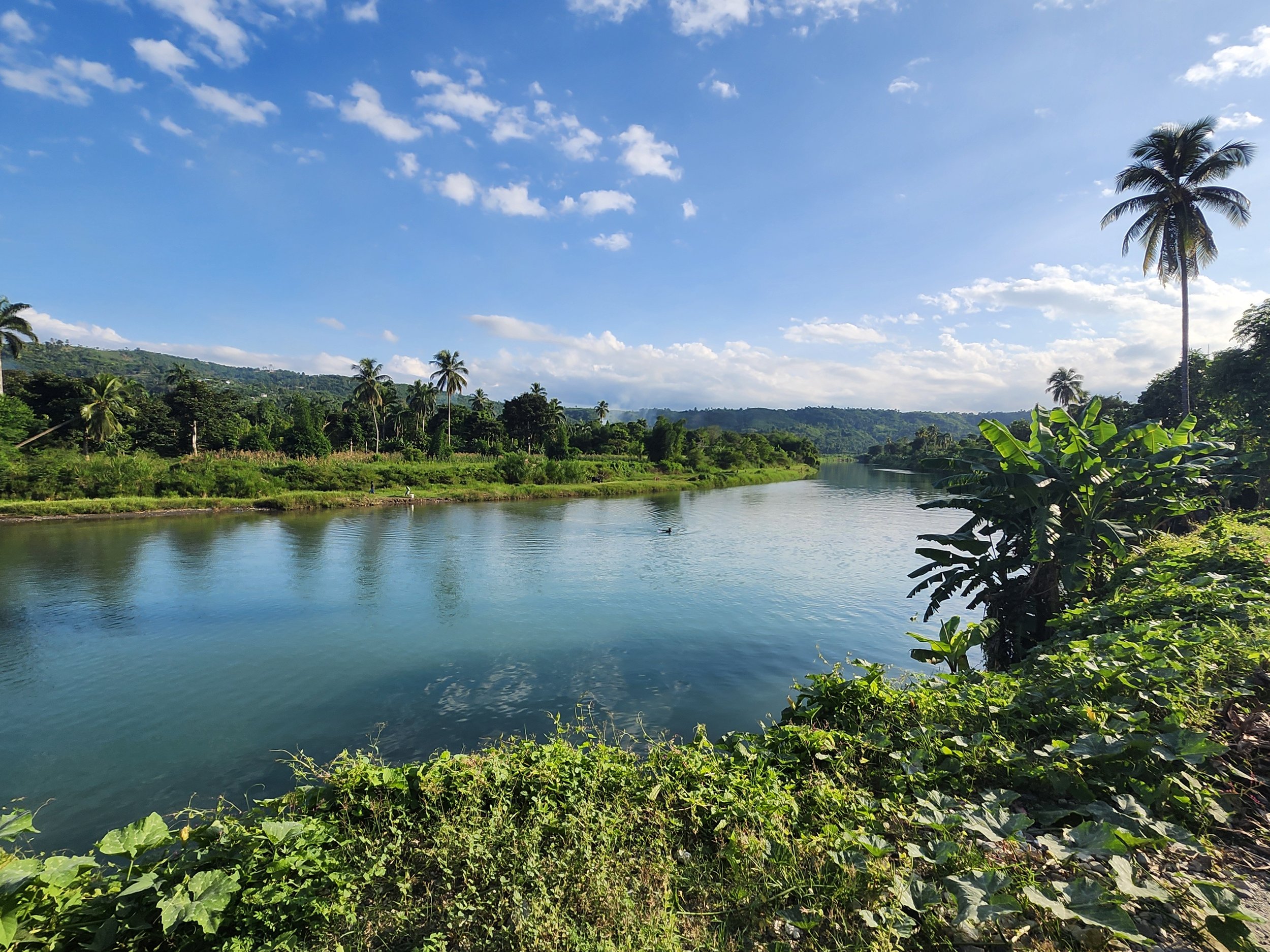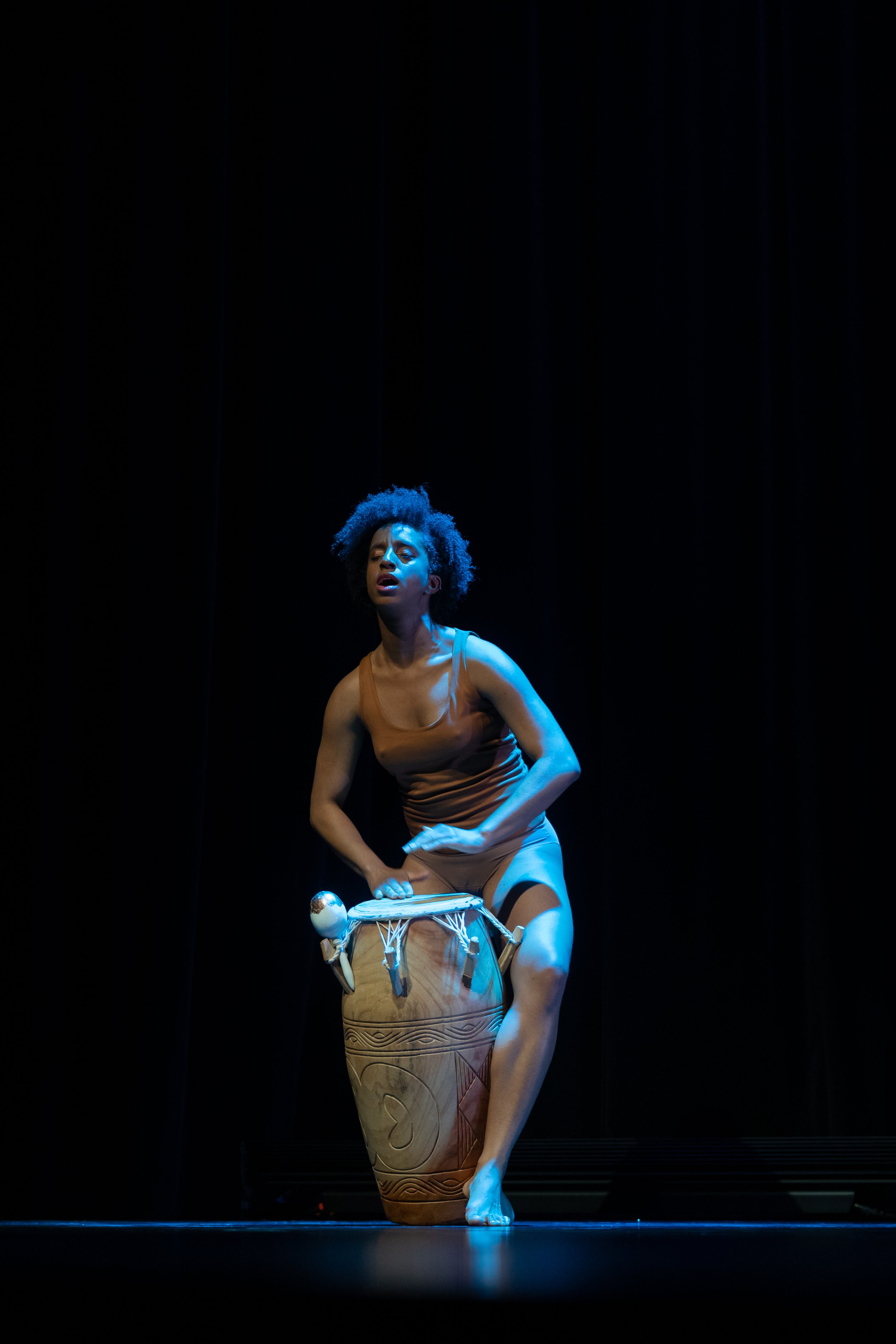The Danger of Always Speaking in the Past
Zila, performing at l’Anse d’Azur, Jérémie, Haïti, November 2024
The Haitian Revolution of 1804 is a largely unknown and overlooked event. Nonetheless, the Haitian war of Independence is well known and centered in common knowledge, society and history for Haitians. But I often forget that outside the reality of being raised in Haiti, raised in the culture and/or in a Haitian household where that moment of imperial renversement is common knowledge, the Haitian Revolution is still under-discussed and may I say, under-known.
In honour and celebration of Dr. Camille Turner’s work and exhibit Otherworld, held at the Art Museum, University of Toronto until March 22, 2025, I was invited by artist, author, and arts manager, Bushra Junaid to speak on a panel about “Our Ancestors Wildest Dreams,” with Diane Roberts, SA Smythe and moderated by Esery Mondésir on March 14, 2025. A lot was shared and for me a lot happened… Now that I have sat down, slept at least half way through the night, I have more to say. I wonder about how I speak of the now and why on certain topics, I avoid it.
During the panel discussion, I was charged with information, thoughts, frustrations and restrictions. How to talk about Haiti now? In this very moment where it may not be available to me to filter just what needs to be said, or what people need to hear? Should I be talking about Haiti outside of my immediate artistic work at all? (Probably not).
Speaking of the past is important to me because indeed, I speak in my current artistic work, « Jérémie, au Coeur de ma vie » of a specific massacre, Les Vêpres, which was ordered by Duvalier in 1964. And it mattered. Yes there were other massacres before, and others that continue to take place today. And that is the point. How to humanize and resensitize ourselves to practices of terrorism and control that we have been taught to gloss over? As for me, I do not want Les Vêpres, i.e. any and all the massacres at once to stay bundled in silence.
Over the years, I can appreciate that speaking about the stank-naked-truth to release it—to release us from the past is cathartic. I have released the need to stay tied to certain states of being and states of mind, and I do not believe in shame-on-a-constant as a useful emotion or mindset to stay in. I am an artist who has done research in the body, through the written form, through historical references and archives, current and past conversations, interviews, and my one month and change visit to Jérémie, Haïti (where I spent most of my time) and Cap-Haitien. I carry certain frustrations in my body that are too common to those living in the diaspora and who, yes, dangerously often and I’d almost say, always speak in the past about Haïti; even when one has recently reconnected to the land in the present. Is it because the present is so hard to accept? But why, in those moments of speaking of the present do I often forget to also remind those around me that change is being conjured up by the people themselves as we speak? Is it the anger fueled by so much time spent engaging with the past?
I am still figuring that one out.
While I work on « Jérémie, au coeur de ma vie » -- which precisely references the way in which my parents would always talk about Jérémie their hometown while growing up at home—I hold Jérémie and its stories close to my heart, my thoughts, and my artistic decisions. Hearing my parents speak about Jérémie almost everyday of my life (so it feels) gives me the sense that indeed this specific town of cascading landscapes, La ville des Poètes, defines me at my core. It is a prosperous, agricultural, neglected, entrepreneur, bustling, green, isolated, populated, lively, safe, joyful, gated, dusty, magical, mystical place that feels like a central reference to everything about us as a family.
The Grand’Anse River, Jérémie, November 2024
So back to the question of the panel and the nature of these intellectual and artistic discussions that are meant to make us think, I still sit uncomfortably with the question of why return to the past? Most people (but of course not all) would agree that it is useful and crucial to do that to know who you are. However, in my responses during the panel, I felt I dangerously stayed in a narrative that too often dwells on positioning Haïti as prosperous only in the past. (Yes, I am very self-critical, but acknowledge this process as only being a true accountability to myself, and not as an act of outter-pleasing). The truth is that I often feel frustrated in Anglo-centric spaces where I frankly do not know how to talk about Haïti without potentially taking a stance that leaves people slightly confused. The narrative by which non-Haitians are only proud of Haïti because of our revolution, or rather THE Revolution that really belongs to all of us, is problematic. And what continues to trouble me is that the pride of Black liberation described in tandem with the revolution is spoken about consistently and only in the past (or as a reference to the past).
Does this mean that Black, African, African descendant peoples and others have absolutely no relationship to Haïti outside of this historic event? I wonder, what are those interactions like? Beyond that, how does the information about La guerre d’indépendance de 1804, la bataille de Vertières en novembre 1803, and la cérémonie Bwa Kay Imam de 1791 resonate in people’s bodies? How does it shift how we each and collectively all live? And do we even think about that?
I guess, it makes sense given that few people I have met who were not Haitian, and even some Haitians have never been to Haïti before. That is part of the complot, of the plot to minimize what I think of as the project of Haïti, or rather the revolutionary project of Ayiti… Everyone I have ever met has always said they absolutely loved it and that travelling to Haïti changed their whole lives. I believe it and agree…
Back to my point, while answering the questions during the panel’s short Q&A session, I also felt that in an attempt to introduce the audience to the importance of speaking frankly about the present, so we can see some of these realities for what they are—and actually understand how what is going wrong in Haïti currently, is also a reflection of what is deeply wrong in the world globally, I too fell into that trap of at least momentarily only speaking of Haïti in the past.
… urgh.
…
And maybe, the lesson for me is to accept that it may be useful for people here to only speak of Haïti as the Black Republic that taught the world about the meaning of possibility, emancipation, freedom, and liberation. The war won by the soon-to-become Haitians against the French and Napoleon’s army burst us into a new imagination. And unless I speak my truth about everything that has happened in between those moments and this one, I do not feel that I am doing the past, my self, or collective memory any sort of justice.
« Jérémie, au coeur de ma vie » speaks about the raw, the ugly, the joyful, the possibility, the mud and togetherness of people, through yanvalou—one of the traditional rhythms from the Savalou region (present-day Northern Benin). It is the cyclical expression of life, rebirth, and knowing oneself. There are so many ranges to my work that are difficult to explain in writing. I express stories through my body with Haitian folklore (drumming, dancing, singing) in the form of the yanvalou rhythm, a water rhythm, to express the various stories and themes of the work.
Interestingly enough, my approach to creating is to speak the language of Haitian folklore as a foundation for my movements, always as a starting point to tell my own stories. And while telling and curating the stories in this way, the traditional/folk rhythm, movement, inner pace become contemporary, because indeed, the more typical and common folk movements shift and mold to what I want to say, to present-day stories. So, I actively voice my thoughts in the present weaved in with the past in my dance practice. My commitment to this way of dancing, creating, and articulating myself and this rich heritage into the world is a promise and conviction to what the future holds. Yet, I haven’t quite figured out how to translate all of those textures and layers into words… and maybe as I have been told, the key is to talk less, and dance more.
Zila drumming, “Womb Secrets,“ dance Immersion’s Connectively Moving Our Dance, January 2023 by Dawit Tibebu
In these moments, like at the panel, I think of family, friends, people I met along the way who don’t speak of the War of Independence of 1804, or the Haitian Revolution all the time. It’s already in our bodies. And it may possibly show up in the choices of books they read, on choosing to engage with sources and within conversations that only and/or largely address the period between 1791 to 1815/1820 approximately…. Yet, as Esery Mondésir, Haitian artist-filmmaker based in Toronto positioned it in his introductory remarks for the panel, there are details about the historic event of the Revolution that are very important to pause on and to be reminded of, because that winning that war was a catalyst for deep seated changes that followed.
But the issue is, in many spaces of intellectual and artistic exchange, there is not that slow-pace time to speak long and wide about past-present-future. Each word is timed and often the expectations are to perform and share your most insightful thoughts in a brief moment. When speaking on these topics, that has never been a strength of mine, because this work is very charged for me. However thoroughly I prepare, I go off course. In this case, my powerpoint refused to work and I ended up adding a lot more aspects to the story I had not intended on sharing at first. Still, that can be a problem, because with this type of social transformational work there needs to be a clear objective and space for the moderator to do their work…
Now, with more time to tailor my response to the type of narratives I am creating, I think about the fact that I do not need to break out of or break any narratives. I operate according to my own stories and those that shape my world reflect my living realities. Even if the Haitian Revolution and Haïti are romanticized by some, that may be exactly what people need from both. The narratives that shape my world and my work are on a continuum and even when I try to distant myself from getting stuck in the past, doing this is also a part of my journey and my stories. This does not stop me from talking about the very consistent and committed work the young people are doing in Jérémie, via art—particularly fashion, entrepreneurship, photography and such. There are so many other things I understood in my body while there. But even now, in this moment of trying to speak in the present about the many places and people I encountered during my visit—which was indeed a fleeting moment, … I learn to sit with the frustration of things I cannot and do not need to say—though I sometimes wish I could, for people to understand the urgency of shifting what could be a very incomplete perspective on Haïti that keeps it in the past—and therefore keeps our wildest dreams intangible.
For me, speaking of my dreams is also acknowledging my master plan to get out of the nightmares. Because, part of what I really want to say is also really ugly. And I have to accept that. While in Jérémie, I accepted that the ugly truth was also spoken to me by peers, family, friends, people I encountered and while on the phone with family living abroad who reminisced. Some people wanted to talk about it and others simply showed it in the slightest movements and slightest details.
[edited out].
What I really want to say is also about humanizing people beyond a romanticized narrative of the past—and humanizing people in the past, as well as in the present, to give space to the possibility and the current conjuring of the future. Because when getting caught in speaking only in the past—I realize I maim the iterations of and for the future and become guilty of flattening the reality. Urgh. The truth is also that the overall state of the country and that angle on the present overshadows really good work that is being done by people living there as well.
This realization is probably why I should speak less, and dance more. It becomes harder to fall into expectations of what others want to or will hear, when I trust my body. And because the body can communicate a million things at the very same time. The body can then produce stories through the work, the process of reworking, the back-and-forths and sideways and diagonally, while questioning even “the how, why, when”, and being precise with every movement. Then, it becomes much harder to feel the need to, or even try or care to manage the messages shared publicly.
Zila rehearsing for the Collegium for African Diaspora Dance (CADD) conference performance, February 2024, Durham, North Carolina by Michael David Thomas
Being in it is always the work. The present has a way of doing important work, but again I cannot explain it because only the body has the ability to be in it and work in it. The precious work of the now is to tap into what I digested while in Jérémie and in Cap-Haïtien, and also what I feel now, what I know now while exchanging with people—not about anything in particular, but just sensing them although we are living in different places. This keeps me speaking/dancing/living in the now. I am not suggesting that I stay stuck to my trip last year, I am saying that that information and the memories stay with me, just the way that information about past events stay in the land, allowing me to access them when I engage with the land.
So yes, it is dangerous to always speak in the past and of the past as only past, as this can easily result in generalizations that ironically are then poorly located and locatable. So in these moments of being on a panel where the space is open and the audience is made up of anyone and everyone, every word must be rehearsed, because people are not in my head and cannot read my mind and because we are not all operating from the same place. I refuse to bask in the pain of the past and overlook the balanced and joyful elements that make it even possible to speak of the gnawing issues. It is also important for me to acknowledge that indeed the Haitian Revolution has been securely planted in my understanding of the world from a young age and that I really became conscious of what it meant in my teens and rediscovered its meaning again in my 30s. This is not at all the case for many people who are not Haitian, nor have a connection to Haïti.
Only a day away from the presentation of my piece, the work says everything in urgency exactly as it needs to, to those who will be a part of it. This world—as in certain spaces never quite connected to Haiti—needs to know about the Haitian Revolution of 1804 and may spend many lifetimes scratching the surface of the complexities of its story. I have come to accept that that work alone suffices. This is what many refer to as “the right to opacity,” the thoughts of Martinican theorist and writer Edouard Glissant. Indeed, what I know on my own, what is collectively known, what Haitians in Haiti and in specific communities know does not need to be known. It lives perfectly well right where it is. In my younger years, I spent a lot of time trying to be understood, when actually if I am clear about my objective and purpose, I don’t even have to try. People get what they need from the work. Frankly, even in terms of history, no one has to know all of it, 1804 and what led to it suffices.





